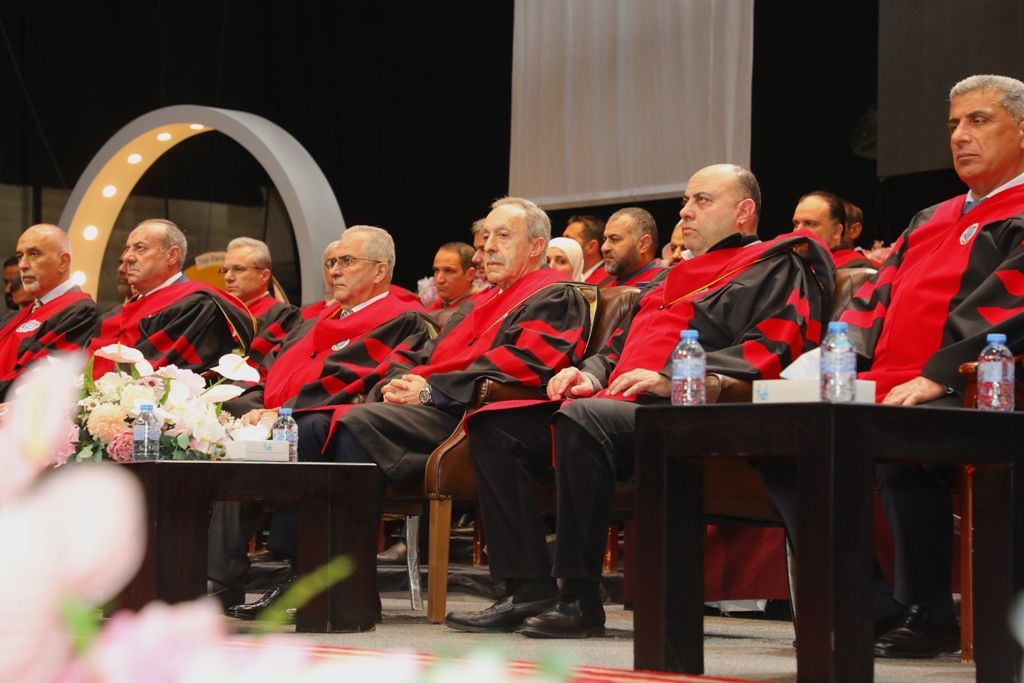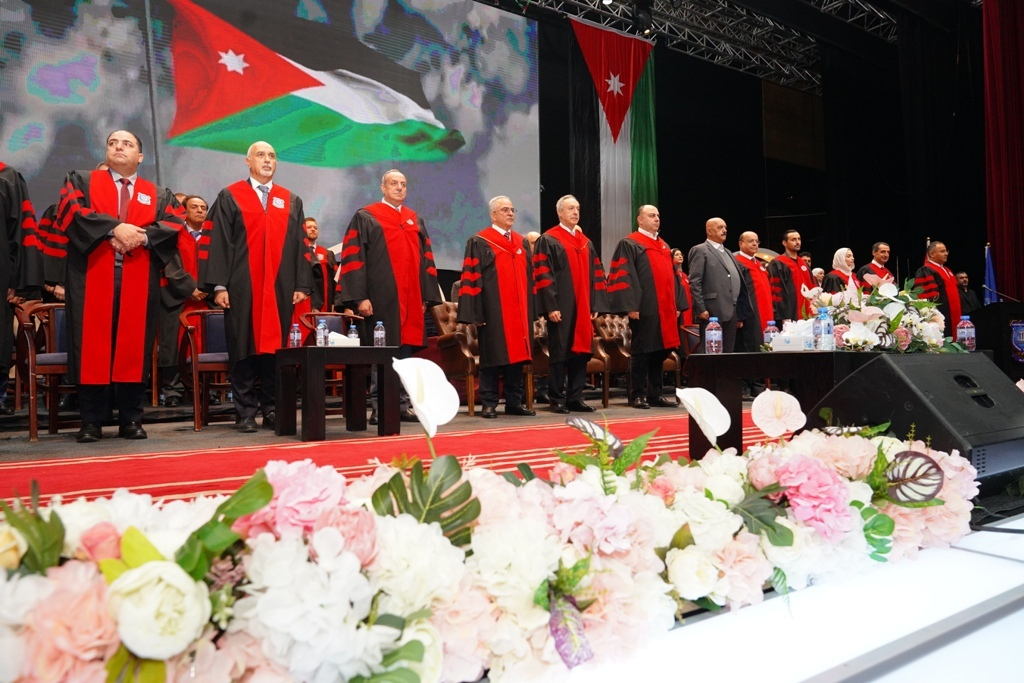Al-Ahliyya Amman University

11 December 2018
The Shortcomings of the Policies of Foreign Students Recruitment By Dr. Maher Ahmed Al-Hourani
There is no doubt that Jordan's educational role in the region is an effective one because its quality is so high and admired in the region. This is reflected in the huge number of foreign students who study in Jordanian universities. Their number reaches approximately 40 thousand Arab and foreign male and female students. It is worth mentioning that this number has been growing since 2017 - 2018 because of the facilitations and procedures offered by the Ministry of Higher Education which implement the priority of recruiting foreign students in the National Strategy of the Human Resources Development. The growing number is also related to the Ministry’s efforts in working on a plan that increases the number of these students to reach (70) thousand by 2020. Furthermore, the Ministry established a Directorate for the foreign student affairs for the purpose of institutionalizing and increasing the recruitment of foreign students, in addition to organizing services provided to them and improving the quality of education in the institutions of Jordanian higher education. Dr. Fida Al-Tamimi, the Director of the Directorate, exerted great efforts along with the Secretary General of Higher Education, Dr. Ahed Al-Wahdneh, to implement the directives of His Majesty regarding the National Strategy of the Human Resources Development for foreign students which positively reflected on the interests of universities, economy and the country as a whole.Unfortunately, and as usual, there was a flaw in its implementation because of a conflict between the Ministry of Higher Education on the one hand and the Association of Higher Education Accreditation and its quality assurance on the other.His Excellency Dr. Adel Al-Twaisi, the former Minister of Higher Education and Scientific Research, and (due to the difficult circumstances that prevailed the Arab region) had granted private universities exceptions in recruiting some of the foreign students, representing 30% of the absorptive capacity of universities. He also granted an exception to some foreign students whose rating is (acceptable) in the Bachelor’s degree to attend postgraduate studies in private universities.Based on the above, arrangements were made with the students’ embassies (according to the exceptions) and the process of accepting a number of these students in our universities started. However, two weeks ago we were taken by surprise when the Council of Higher Education (Based on a directive from the Association of Higher Education Accreditation) canceled these exceptions and put us in an awkward position with students and their countries, which could cause a crisis between Jordan and those countries with which we have distinct relations. The question here: For whose interest such unwise decisions are made? These decisions affect the interest of the whole country and lead foreign students, their families and countries to lose credibility with the higher education institutions in our country.We know that Jordan is the only country in the region that has strong potential to be a center of education in the area due to Jordan’s touristic nature and to its appropriate traditions that suit students and their families in addition to the availability of good infrastructure of transport networks, services, hotels, restaurants, etc. Moreover, Jordanian universities match the best universities in the region in terms of facilities, equipment and professors who are recognized in all countries of the region and the world. It is one of the best investments to recruit large numbers of Arab and foreign students because this constitutes an additional source for the national income. It is also in line with the general trend of the government to encourage educational and tourism sectors. Arab or Muslim non-Arab students exchange hard currencies inside the country, whether the costs of their study, residency, living or their family visits, etc. For example, when a Palestinian student of the 1948 enters or leaves Jordan he/she pays a fee of 55 JD. Moreover, introducing foreign students to international programs at universities and canceling parallel education provides hard currencies which drive the economic wheel through educational tourism as well.We ask ourselves: Are we more advanced than Britain or the United States of America in students’ recruitment? These countries grant their universities full independence in determining their admission policies acceptance in each university is done according to its programs and study plans. Some of these universities subject foreign students to a preparatory year or take some courses to raise their levels. Eventually and after students succeed, they get enrolled in the specializations they choose.It is necessary to follow these international universities in the process of recruiting students from abroad without obstacles and amend the legislation and laws in accordance with this trend (providing acceptance and facilitations to foreign students based on their academic performance).It is also necessary to grant universities independence in admitting foreign students; each university according to its status and its commitment to apply the public or private accreditation regulations and the quality standards.Therefore, after the emergence of this big problem, we, as private universities, contacted the Prime Minister and the Chairman of the Education Committee in the Parliament to explain our cause and to find a solution to this major dilemma; to find a stable legislative system regarding this matter irrelevant to whoever is in position of authority and to deal with one authority only as a frame of reference so that issues do not get lost here and there. Owners of private universities detest the rigid mindsets that focus only on the forms and ignore the contents. They must focus on the outputs and not only on the inputs; apply the standards and quality systems in a scientific way and keep away from personalization! This can be achieved by working in the spirit of one team with all universities. This also can be achieved by guiding and helping these universities to develop themselves and to achieve the best results that uplift the reputation of higher education in the homeland instead of phishing for a mistake here or there for this university or that! Moreover, the control authorities should guide the educational process in these universities to ensure the quality of their educational outputs.They should allow universities to introduce new programs and specializations that meet requirements of the labor market in the region countries to encourage foreign students to study in Jordan. They also should stay away from the bureaucracy in the making decision regarding establishing new Bachelor or Postgraduate programs since many requests have not been answered because of delays that caused us to miss opportunities to recruit students from abroad. It is a big injustice to allow private universities to increase their absorptive capacities only one time a year. If a university has the potential to recruit more students and it meets the standards of public and private accreditations, why should not universities apply “every semester” to raise the absorptive capacity instead of one time a year? Raising the absorptive capacities of universities reduces unemployment, especially among instructors and employees. It is worth mentioning that universities pay fees for higher education to increase the absorptive capacity, to introduce or accredit specializations.To this end, we turn to the Prime Minister Dr. Omar Al-Razaz to study this situation and take decisions to address the issue of foreign students and exceptions before it is too late to lose the big numbers of these students in favor of other countries such as Turkey, Egypt and others. We also hope to open the door for accepting Jordanian students who have obtained their General Certificates of Education from Turkey and other countries and not to lose them in favor of universities in other countries. Obstacles should be removed; facilitations and support should be provided in the admission of foreign students and respect the sovereignty of other countries and their educational laws.If these ideas are implemented correctly in recruiting students from abroad, will undoubtedly solve a large part of the indebtedness in public and private universities.





